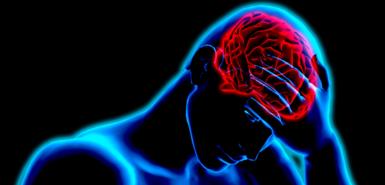Published: December 21, 2009
 A new study at the University of Wisconsin-Madison suggests that depressed patients are unable to sustain activity in brain areas related to positive emotion.
A new study at the University of Wisconsin-Madison suggests that depressed patients are unable to sustain activity in brain areas related to positive emotion.
The study challenges previous notions that individuals with depression show less brain activity in areas associated with positive emotion. Instead, the new data suggest similar initial levels of activity, but an inability to sustain them over time. The new work was reported online this week (Dec. 21) in the Proceedings of the National Academy of Sciences. [continue reading…]
Published: December 17, 2009
 Are you a verbal learner or a visual learner? Chances are, you’ve pegged yourself or your children as either one or the other and rely on study techniques that suit your individual learning needs. And you’re not alone— for more than 30 years, the notion that teaching methods should match a student’s particular learning style has exerted a powerful influence on education. The long-standing popularity of the learning styles movement has in turn created a thriving commercial market amongst researchers, educators, and the general public.
Are you a verbal learner or a visual learner? Chances are, you’ve pegged yourself or your children as either one or the other and rely on study techniques that suit your individual learning needs. And you’re not alone— for more than 30 years, the notion that teaching methods should match a student’s particular learning style has exerted a powerful influence on education. The long-standing popularity of the learning styles movement has in turn created a thriving commercial market amongst researchers, educators, and the general public.
The wide appeal of the idea that some students will learn better when material is presented visually and that others will learn better when the material is presented verbally, or even in some other way, is evident in the vast number of learning-style tests and teaching guides available for purchase and used in schools. But does scientific research really support the existence of different learning styles, or the hypothesis that people learn better when taught in a way that matches their own unique style?
Unfortunately, the answer is no, according to a major new report published this month in Psychological Science in the Public Interest, [continue reading…]
Published: November 11, 2009
New UAB Study Sheds Light on Brain’s Response to Distress, Unexpected Events from uabnews on Vimeo.
In a new study, psychologists at the University of Alabama at Birmingham (UAB) are able to see in detail for the first time how various regions of the human brain respond when people experience an unexpected or traumatic event. The study could lead to the creation of biological measures that could identify people with post-traumatic stress disorder (PTSD) or identify PTSD sufferers who would benefit from specific treatments. [continue reading…]
Published: October 26, 2009
People are unconsciously fairer and more generous when they are in clean-smelling environments, according to a soon-to-be published study led by a Brigham Young University professor.
The research found a dramatic improvement in ethical behavior with just a few spritzes of citrus-scented Windex. [continue reading…]
 A new study at the University of Wisconsin-Madison suggests that depressed patients are unable to sustain activity in brain areas related to positive emotion.
A new study at the University of Wisconsin-Madison suggests that depressed patients are unable to sustain activity in brain areas related to positive emotion.
